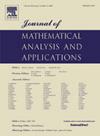Beyond operator systems
IF 1.2
3区 数学
Q1 MATHEMATICS
Journal of Mathematical Analysis and Applications
Pub Date : 2025-10-02
DOI:10.1016/j.jmaa.2025.130102
引用次数: 0
Abstract
Operator systems connect operator algebra, free semialgebraic geometry and quantum information theory. In this work we generalize operator systems and many of their theorems. While positive semidefinite matrices form the underlying structure of operator systems, our work shows that these can be promoted to far more general structures. For instance, we prove a general extension theorem which unifies the well-known homomorphism theorem, Riesz' extension theorem, Farkas' lemma and Arveson's extension theorem. On the other hand, the same theorem gives rise to new vector-valued extension theorems, even for invariant maps, when applied to other underlying structures. We also prove generalized versions of the Choi–Kraus representation, Choi–Effros theorem, duality of operator systems, factorizations of completely positive maps, and more, leading to new results even for operator systems themselves. In addition, our proofs are shorter and simpler, revealing the interplay between cones and tensor products, captured elegantly in terms of star autonomous categories. This perspective gives rise to new connections between group representations, mapping cones and topological quantum field theory, as they correspond to different instances of our framework and are thus siblings of operator systems. A short video abstract can be found here
超越操作系统
算子系统连接算子代数,自由半代数几何和量子信息理论。在这项工作中,我们推广了算子系统和它们的许多定理。虽然正半定矩阵构成了算子系统的底层结构,但我们的工作表明,这些结构可以推广到更一般的结构。例如,我们证明了一个一般的可拓定理,它统一了众所周知的同态定理、Riesz可拓定理、Farkas引理和Arveson可拓定理。另一方面,同样的定理在应用于其他底层结构时,甚至对于不变映射,也会产生新的向量值扩展定理。我们还证明了广义版的Choi-Kraus表示、Choi-Effros定理、算子系统的对偶性、完全正映射的分解等,甚至对算子系统本身也得到了新的结果。此外,我们的证明更简短,更简单,揭示了锥体和张量积之间的相互作用,以星型自治范畴的形式优雅地捕捉到了这一点。这种观点在群表示、映射锥和拓扑量子场论之间产生了新的联系,因为它们对应于我们框架的不同实例,因此是算子系统的兄弟姐妹。一个简短的视频摘要可以在这里找到
本文章由计算机程序翻译,如有差异,请以英文原文为准。
求助全文
约1分钟内获得全文
求助全文
来源期刊
CiteScore
2.50
自引率
7.70%
发文量
790
审稿时长
6 months
期刊介绍:
The Journal of Mathematical Analysis and Applications presents papers that treat mathematical analysis and its numerous applications. The journal emphasizes articles devoted to the mathematical treatment of questions arising in physics, chemistry, biology, and engineering, particularly those that stress analytical aspects and novel problems and their solutions.
Papers are sought which employ one or more of the following areas of classical analysis:
• Analytic number theory
• Functional analysis and operator theory
• Real and harmonic analysis
• Complex analysis
• Numerical analysis
• Applied mathematics
• Partial differential equations
• Dynamical systems
• Control and Optimization
• Probability
• Mathematical biology
• Combinatorics
• Mathematical physics.

 求助内容:
求助内容: 应助结果提醒方式:
应助结果提醒方式:


